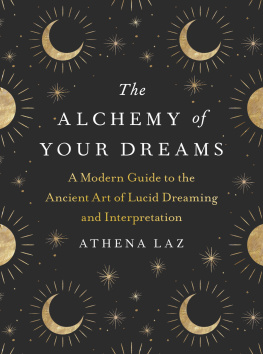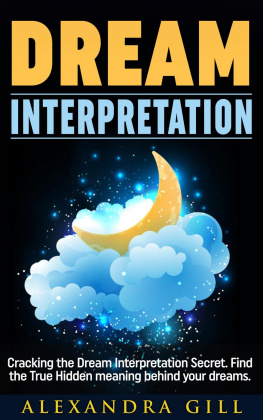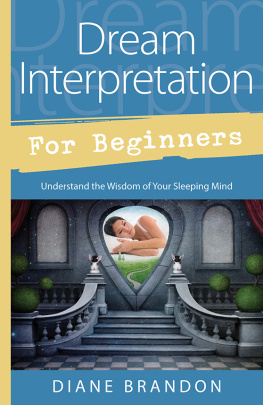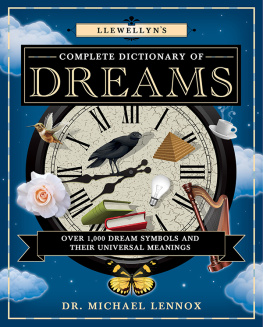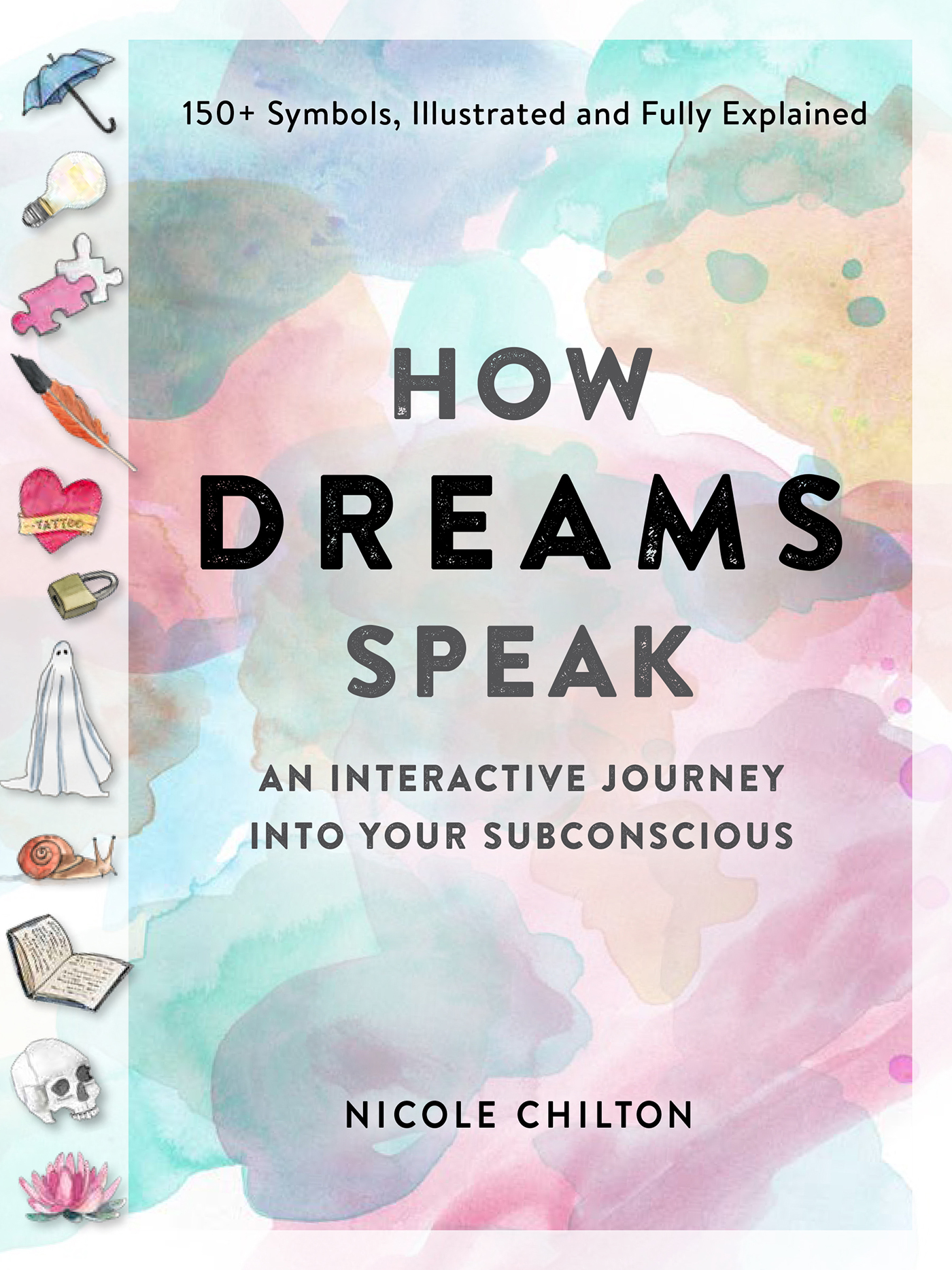
How
Dreams
Speak
An Interactive Journey into Your Subconscious

written and illustrated by Nicole Chilton
Workman New York
The future belongs to those who believe in the beauty of their dreams...
Eleanor Roosevelt
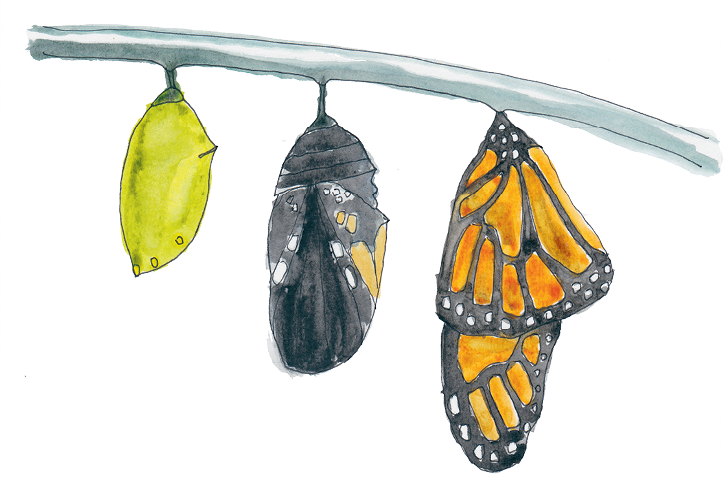
This book is dedicated to those who believe their dreams have meaning; and to Dan, Jasper, and Maggie, who give meaning to mine.
Contents

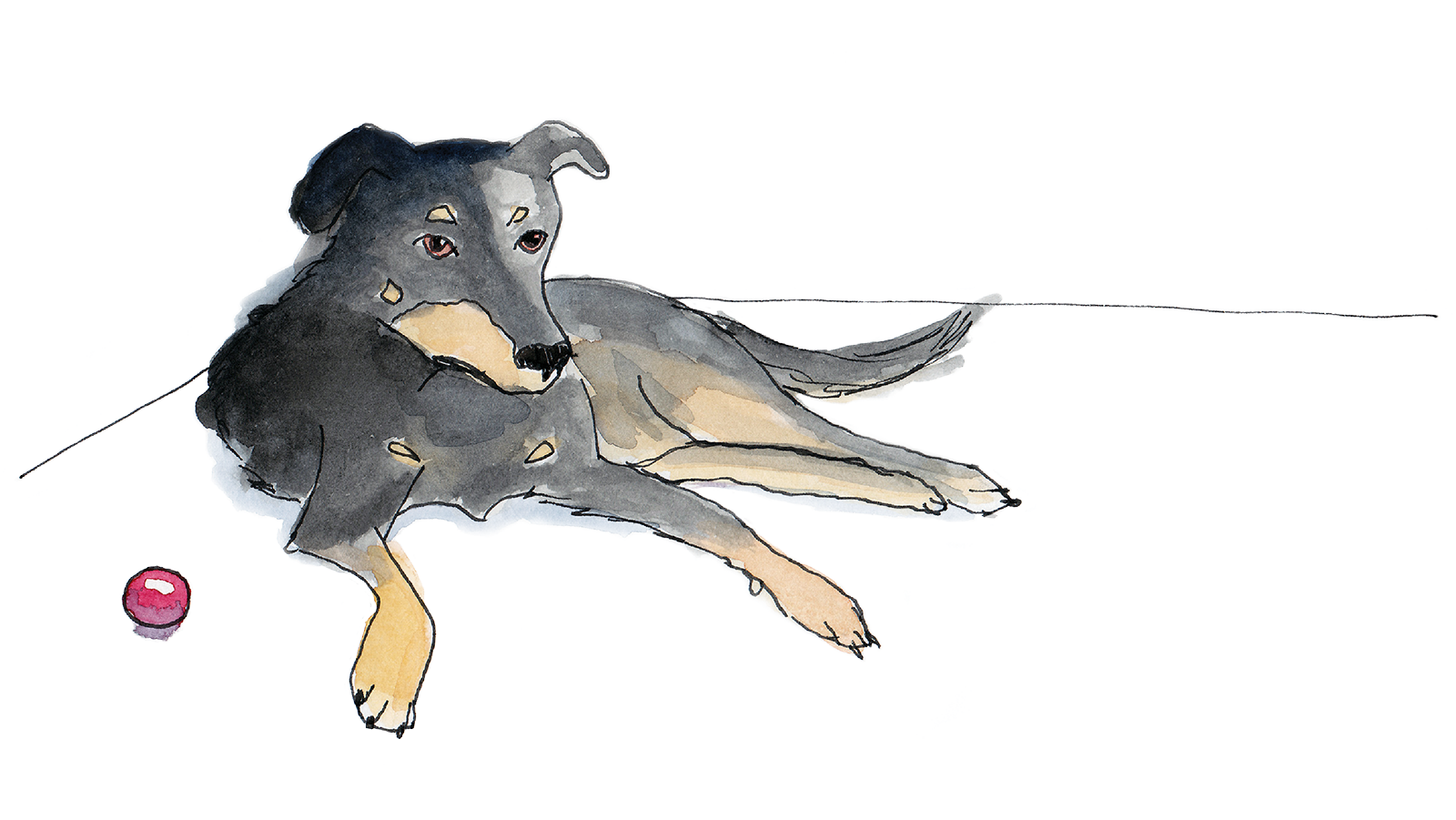
Introduction

The Magic of Dreams
S hortly after my beloved doberman passed away, I had a dream about a playful crow. It brought me a ball and wanted to play fetch. I obliged. The game went on for a bit, and then I woke up. As I often do, I wrote about the dream in my journal, then went about my day.
Not long after, I had an ah-ha moment that stopped me in my tracks: What if my dearly departed dog, no longer constrained by his weakened physical shell, had come to visit me in my dreams with newfound energy to play ball? Throughout the next few weeks, other animals continued to appear in my dreams, all with similar characteristics to those of my old dog: dark black fur (or scales), playful, protective, and slightly intimidating. They became companions during my slumbering state.
Whether these dream animals were truly my pet in various spiritual forms, I did not care. Through my dreams, I found comfort and happiness during a stage of immense sadness. I looked forward to going to bed at night, eager to see what form my Bogey would take next.
A few years later, my sisters dog Millie passed away. Millie was a shaggy mutt, and our dogs had been best buds. It had been a while since I recalled dreaming of an animal visitor, but the night Millie died a pair of wolves appeared, standing on a hillside. I knew immediately that they were Bogey and Millie, and that Bogey was telling me hed found her and she was doing fine. When I told my sister this, she started to cry. She wondered if she had received similar visits but couldnt remember them because dream recollection was a challenge for her.
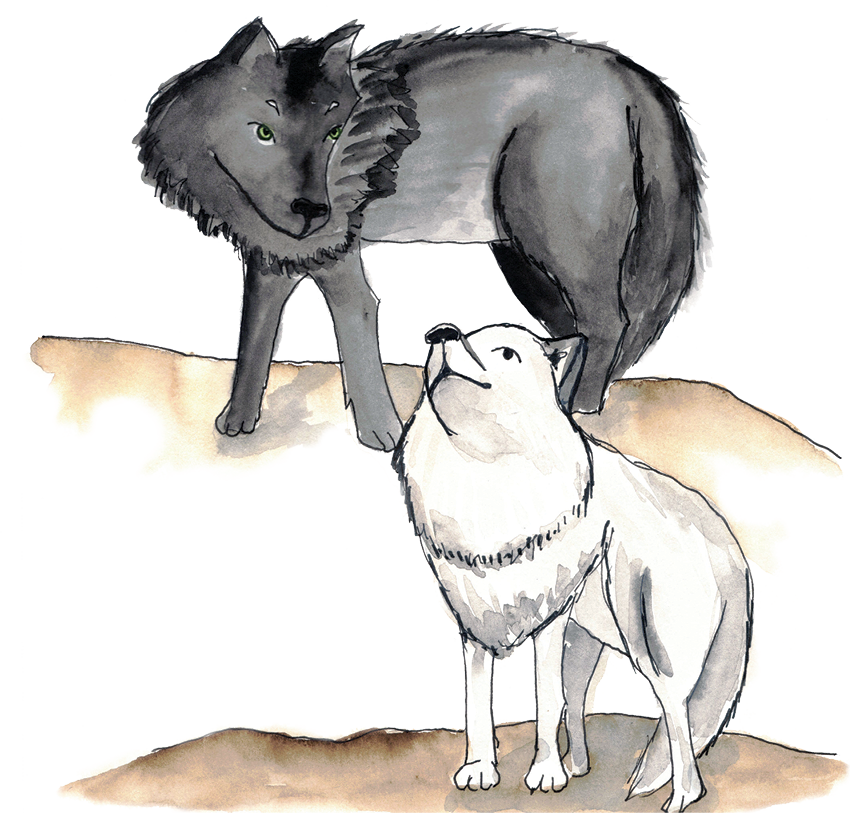
Not everyone is able to recall their nightly adventures, but believe it or not, they do exist. Scientific evidence proves that everyone dreamsremembering them the next morning is the hard part. Being able to recall dreams vividly is a gift, and one you should give to yourself.
This book was born out of creative necessity. I have been writing my dreams down for decades, but it wasnt until a mentor encouraged me to incorporate art into my dream writing that I started truly seeing themes, color palettes, and blurred lines between waking and dreaming. Because of this endeavor, Ive had endless wells of project ideas, Ive become more empathetic, and I always have a good story to tell.
Dreams speak to us. They are messages from our subconscious minds, communicating both abstractly and metaphorically. They are keys that unlock the mysteries our waking brains simply cannot process during the day. The better you can recall your dreams, the easier you can connect with yourself and the world around you on a more intuitive and creative level.
Perhaps you are the type of person who grasps at those gossamer strands of your dreams every morning, desperately trying to recall what just happened. Or maybe you listen with envy as a friend talks about a vivid dream they had, yet you never seem to remember any of yours. You might be one of those lucky beings who has clear and lucid dreams, often confusing what occurred during sleep with waking life. Wherever you are on your dream journey, I am excited that this book is now in your hands.
Because each human is unique, this is not a one-size-fits-all dream dictionary. The interpretations of the dream symbols and themes within these pages are not unique to metheyve been developed over thousands of years.
Dreams have always held a significant purpose in peoples identities and spirituality; the depth and power of dreams across the globe is rich and full of wisdom. While I can offer only a brief glimpse of the importance of dreams across cultures, it is vital that we value the various traditions and beliefs of Indigenous peoples and understand just how much of our contemporary knowledge of their existence comes from colonialism and, in turn, much suffering.
In addition to recognizing and highlighting the importance of dreams the world over, Ive looked at the symbols through a historical and psychological lens and included a dash of my own intuition. I hope youll find this to be a helpful tool in your own dreamwork. If this is all still too intimidating, worry not! I have provided tips and techniques to help you enhance your nightly dreams, as well as brief backgrounds on the history and science of sleep. Theres also a reference list of additional reading in the back if youd like to dive deeper into dream research.
The world needs dreamers like you, or like the dreamer you can become. More importantly, you need a dreamer like you.
Lets get started, and sweet dreams!
Nicole Chilton
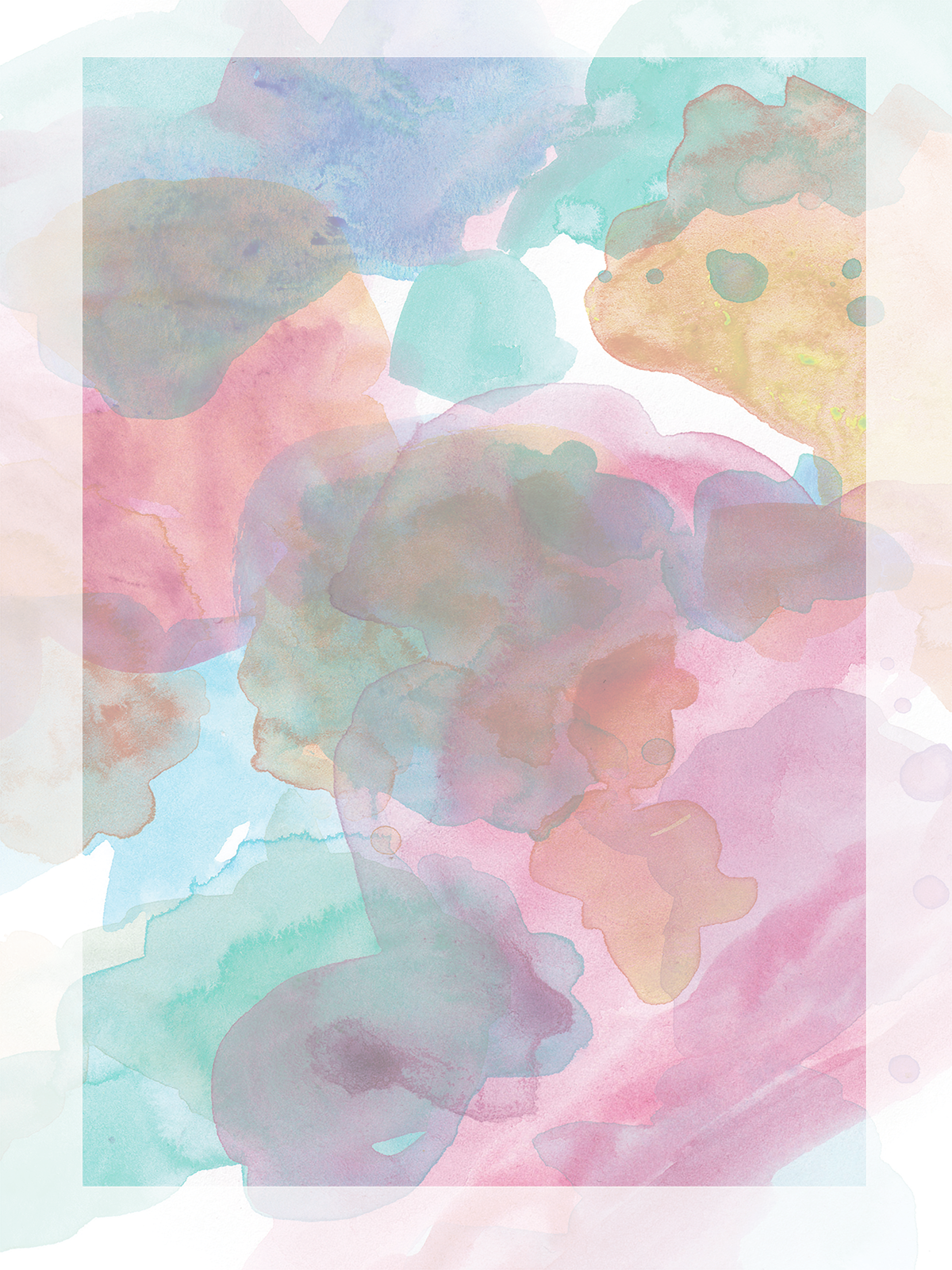
Chapter 1

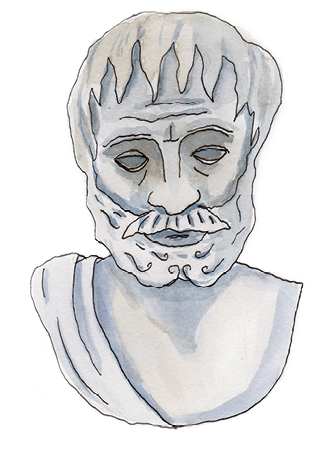
The Philosophy of Dreams
W e all dream. Science has shown this to be the case, with the exception of those who suffer from certain neurological disorders. In 2015, French scientists studied more than two hundred people who claimed they didnt dream or at least couldnt remember dreaming. The scientists found that even though the subjects did not recall their dreams upon waking, each of them exhibited patterns and responses, such as muscle twitching and vocalization during rapid eye movement (REM) sleep, common to all dreamers. Even people who have been born with congenital blindness still experience REM sleep and recall dreams as tactile and audible experiences rather than visual ones.
Dreams are there whether you remember them or not. The more pressing question is why do we dream? And thats a harder one to answer.
Dreams arent just wacky stories you tell your friend the next day. Historically, dreams could make or break a persontake biblical Joseph, whose brothers sold him into slavery after he boasted about ruling over them in a dream. It was a widespread belief in ancient cultures that dreams were direct messages from the gods. Ancient Greeks and Egyptians built temples for people to sleep in, hoping that a deity would visit them in their dreams. If a god or goddess made an appearance, they believed they would then be healed from an illness or instructed on how to solve problems in their waking life.
Next page

